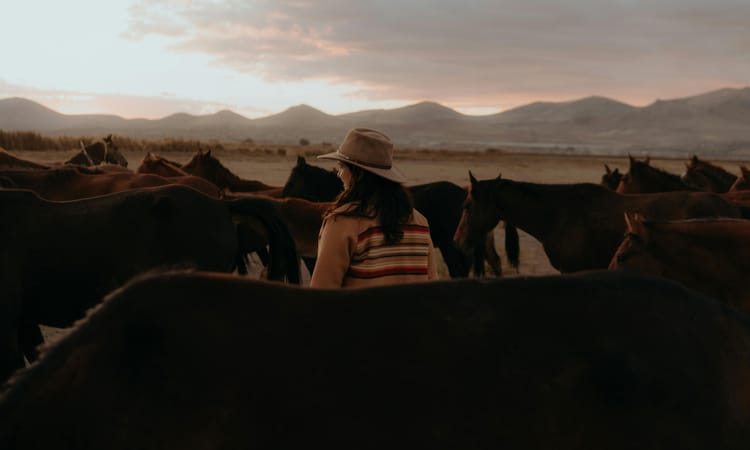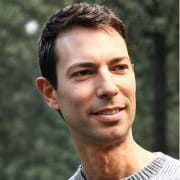Neurodiversity in Leadership: Harness diverse thinking styles for innovation.

👋🏻 Hello growth seekers,
Before we begin, I want to remind you of our upcoming free community webinar next monday about "How High Net Worth people think and invest" with Luisa De Giorgi, Managing Director JP Morgan Italy. Join us to gain insights about how to maximize your financial wellbeing!
In this edition I am also sharing a personal update in the Community Spotlight, scroll down to the section to read more 👇🏻
Enjoy this newsletter!
Temple Grandin stood alone on the expansive Colorado ranch as the first light of dawn broke over the horizon, casting a golden hue across the rolling fields. The sky above was a canvas of soft pinks and oranges, the colors of sunrise blending seamlessly into the deep blues of the waning night. The crisp morning air was filled with the soft murmurs of cattle awakening to a new day, their silhouettes moving gently against the backdrop of the glowing sky. To most, these sounds and sights were part of the everyday tapestry of ranch life—unremarkable and routine. But to Temple, each rustle of grass, each flick of a tail, each lowing call was a vivid image etched into her mind—a complex language that she uniquely understood. The rhythmic patterns of hoofbeats and the subtle shifts in the herd's movements told her stories of comfort, anxiety, and anticipation. Living with autism, she often felt like an outsider in human interactions, misunderstood and isolated due to her different way of perceiving the world. Yet here among the animals, she found a profound connection and a sense of belonging that eluded her elsewhere. This was her sanctuary, a place where her differences became her strengths and her sensitivities became assets. In this pivotal moment, Temple embraced her distinctive way of thinking not as a barrier but as a bridge to innovation and understanding. She realized that her ability to "think in pictures" allowed her to empathize with animals on a level others couldn't fathom, giving her insights into their behavior and needs. This revelation wasn't just personal—it was the catalyst for a groundbreaking journey that would revolutionize animal welfare and redefine leadership.
🌟 Turning Differences into Leadership Assets
Temple's path was laden with challenges that would have deterred many. In her early years, she faced social isolation and misunderstanding, often labeled as odd or unapproachable due to her autism. Traditional educational settings were ill-equipped to nurture her talents, and she struggled with conventional teaching methods. Yet, she refused to let these obstacles define her future. Instead, Temple immersed herself in her passions, earning degrees in psychology and animal science. Her unique perspective enabled her to identify stress factors in livestock that others overlooked. She designed innovative livestock handling systems, such as curved corrals and humane slaughterhouses, which significantly reduced animal anxiety and improved efficiency. These designs weren't just theoretical—they were practical solutions that transformed industry practices. For managers climbing the corporate ladder, Temple's story is a powerful testament to the value of leveraging one's unique strengths. Her journey illustrates how embracing and harnessing different thinking styles can lead to exceptional leadership and innovation, propelling one's career while making a significant impact on the industry.
🚀 Leading Innovation Through Embracing Neurodiversity
Temple didn't stop at personal achievements; she became a vocal advocate for neurodiversity in all professional spheres. She recognized that her success was not in spite of her autism but because of it. By openly sharing her experiences, she challenged preconceived notions about neurodivergent individuals. Temple emphasized that diverse cognitive styles are not just beneficial—they are essential for innovation and problem-solving. She encouraged organizations to create environments where all employees feel valued and empowered to contribute their unique perspectives. For leaders and managers, her legacy offers a blueprint for fostering inclusivity and harnessing the full potential of their teams. By appreciating and integrating diverse ways of thinking, leaders can drive creativity, enhance decision-making, and achieve greater organizational success. Temple's life work demonstrates that when leaders embrace neurodiversity, they not only unlock individual potential but also pave the way for groundbreaking advancements in their fields. Her story is an inspiring reminder that true leadership involves recognizing the strengths in our differences and turning them into collective achievements.
Practical tools
In this "Practical Tools" section, we've put together a set of resources to support your personal growth journey. Chosen for those keen to explore deeper and refine their leadership qualities, these tools are designed with genuine intention. Here, it's all about taking meaningful steps towards personal betterment. Let's begin!
🔍 See the World Through New Lenses
Temple Grandin's extraordinary ability to perceive the world differently was the cornerstone of her innovative contributions. Similarly, you can unlock new possibilities by actively seeking out and embracing diverse perspectives. Start by challenging your own assumptions and stepping outside your comfort zone. Engage with colleagues who have different backgrounds, expertise, or ways of thinking. By immersing yourself in unfamiliar viewpoints, you broaden your understanding and stimulate creative thinking.
Ask yourself: "Whose perspective am I not considering, and what insights might I gain by exploring it?"
This introspective question encourages you to recognize gaps in your understanding and to value the input of others. By deliberately incorporating diverse perspectives, you enhance your decision-making abilities and demonstrate inclusive leadership—a quality that is highly regarded in any organization. Embracing this practice not only fosters innovation but also positions you as a leader who is adaptable and forward-thinking.
🎯 Leverage Individual Strengths
Just as Temple Grandin transformed her unique cognitive style into a powerful asset, you can propel your team and career by recognizing and utilizing the distinct strengths of those around you. Take the time to understand each team member's skills, experiences, and thinking styles. This might involve having in-depth conversations, observing their problem-solving approaches, or utilizing assessment tools to gain deeper insights.
Reflect on the question: "How can I create opportunities that allow each person to shine through their unique strengths?"
By aligning tasks and projects with individual talents, you not only enhance performance but also boost morale and engagement. This approach demonstrates your commitment to valuing each person's contribution, fostering a collaborative and empowering work environment. As you cultivate a team where everyone operates in their zone of strength, you position yourself as a leader capable of driving exceptional results—a key factor in advancing your career.
Community Spotlight
I would like to share a bit about my personal journey this year.
A friend recently helped me notice how I have been investing an absurd amount of time, effort and money to nurture my self growth. After completing my IMD #ExecutiveCoaching training in 2023, I passed the International Coaching Federation exam in May 2024 (Associate Certified Coach), and accredited as provider for few phsycometric assessments (NEO, Hogan, Leadership Circle 360), undertook weekend trainings as future Mountain Leader and continued to scale our #GrowthRepublic to more than 200 members through the newsletter, my linkedin posts and the free webinars. All this while keeping up with bike rides (6,000 km in 2024), fulfilling my full time job as head of marketing at HP (and actually wanting to thrive at it!) and dedicating spare time as internal coach.
🔁 All this has been fueled by a strong inner motivation and ambition that I could resume in these words: create personal growth loops that positively compound over time. My coaching practice is a growth loop that enables me become a better leader at my job. This allows me to act as internal coach, that in turn allow me to practice what I learn. My combined experience in corporate and coaching allows me to think about interesting topics for newsletters and webinars. The webinars and newsletters grow a community of leaders which spurs networking, ideation and new opportunities. And so on. Each loop initially takes a significant amount of energy and time to get started, then as time goes by, the required energy and effort normalize, thanks to today's low cost of distribution (it's almost free to run a newsletter or a webinars), and leverage from delegation, automation and capital.
A few tricks I use to "create time" have been to stop watching TV (except occasional F1 races!) and reinvest that time to do actual work, using automation platforms (make/airtable/calendly), AI-prompts and GPTs for productivity gains, and the use of delegation to paid collaborators.
🔥 In doing so, my goal is to pursue my passions, which is about doing what looks play to me, but looks like work to others, and acquire specific knowledge in my field of practice: something we cannot be taught, but we can all learn. Like many of us, I have moments of failure and frustration, such as when something I thought was a great idea ends up to be mediocre work or a complete waste of money, time and energy, or when I realize I am not in the present moment and wander in the past or the future, fundamentally missing the gift of being alive. When this happens I try to simply become aware of it, accept it and recenter/refocus again.
📌 I don't know if my personal growth loops will turn out to be one of "the greatest hack of life" or a failed attempt at it - but once again my philosophy in life and at work has been to not care about the outcome and focus only on the effort, ensuring this effort is like play to me even if it seems work to others.
Food For Thought
Welcome to the "Food for Thought" section, your gateway to a curated selection of resources that will nourish your curiosity and inspire your creative journey. In this corner of Growth Republic, we bring a collection of insightful resources that you can look for on the web, from thought-provoking podcasts or books, to illuminating online articles that can expand your horizons and deepen your understanding of the topics we explore. Consider it your intellectual pantry, stocked with ingredients to feed your mind, and ignite your creativity. Dive into these resources and let the feast of knowledge begin.
📖 Book: Thinking in Pictures: My Life with Autism" by Temple Grandin: In this insightful memoir, Temple Grandin shares her personal journey of living with autism. She explains how her ability to think in pictures enabled her to revolutionize livestock handling. This book offers a profound understanding of how embracing different thinking styles can lead to innovation.
🎤 TED Talk: "The World Needs All Kinds of Minds" by Temple Grandin: In this inspiring talk, Temple Grandin discusses how her mind works and why the world benefits from all types of thinkers. She emphasizes the importance of nurturing diverse talents to drive innovation and solve complex problems.
📖 Book:"Neurodiversity at Work: Drive Innovation, Performance and Productivity with a Neurodiverse Workforce" by Theo Smith and Amanda Kirby: this practical guide offers strategies for employers to attract, support, and retain neurodiverse talent. It provides actionable steps to create an inclusive workplace that leverages the unique strengths of all employees.
📝 Harvard Business Review Article: "Neurodiversity as a Competitive Advantage" by Robert D. Austin and Gary P. Pisano
This article explores how organizations can benefit from neurodiversity by tapping into the talents of neurodiverse individuals. It presents case studies of companies that have successfully integrated neurodiversity into their business models to enhance performance.
Quote Of The Week
"The world needs all kinds of minds." - Temple Grandin
About the Author

Hi, I am Cesare Zavalloni. I am a Certified Executive Coach by IMD business school and Associated Certified Coach (ACC), member of International Coaching Federation (ICF). I bring more than 20+ years of experience as corporate executive in Fortune 100 companies and as outdoor adventurer. My purpose is to guide, encourage and inspire young professionals and executives like you to see your authentic leadership nature and the new possibilities this realization creates.
Enjoy this newsletter?
Forward to a friend, sharing is caring.
Was this forwarded to you? If you would like to receive it in the future, subscribe here.
Anything else? Hit reply to send us feedback or say hello. We don't bite!
Here's to a future of growth and success!








